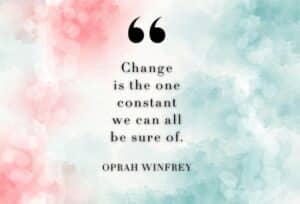The Lasting Impact of Early-Life Responsive Parenting on Childhood Weight

Childhood obesity remains a pressing public health issue in the United States, with over 22% of children between the ages of six and 19 classified as obese. While diet and exercise are often the focal points of obesity prevention efforts, a new study from the Penn State College of Medicine and the Center for Childhood Obesity Research at Penn State University suggests that responsive parenting during early childhood could play a critical role in shaping long-term weight outcomes.
Insights from the INSIGHT study
The research, part of the ongoing INSIGHT study, explored the effects of early-life parenting interventions on childhood weight. The study followed two groups of first-time mothers and their children from birth through age nine. One group received training on responsive parenting practices, which encouraged mothers to attune to their child’s emotional and physical needs, particularly in areas such as feeding, sleep, play, and emotional regulation. The control group, by contrast, received education on household hazard prevention.
Published in JAMA Pediatrics on March 10, 2025, the study builds upon previous findings that demonstrated a positive impact of responsive parenting on children’s weight through age three. The latest results show that children whose mothers received responsive parenting education had lower average body mass index (BMI) levels through middle childhood compared to their peers in the control group. Notably, the effects were more pronounced among female participants, indicating that this approach may be particularly beneficial for young girls.
The challenges of sustaining early gains
Despite the promising early outcomes, the study revealed that the benefits of responsive parenting interventions diminished over time, with BMI differences fading by age nine. Dr. Ian Paul, principal investigator and University Professor of Pediatrics at the Penn State College of Medicine, emphasized that while the intervention had a meaningful early impact, sustaining these effects in an environment that promotes unhealthy weight gain remains a challenge.
He said:
Our intervention stopped when the participating children were 2 years old and focused on the parenting of young children rather than behaviors and risk factors that emerge among school-aged children… While we are delighted that we made an impact early on, the fact that the beneficial effects disappeared by age 9 is not surprising, given the obesogenic environment we live in.
Dr. Jennifer Savage, another principal investigator and Director of Penn State’s Center for Childhood Obesity Research, echoed this sentiment, highlighting the importance of ongoing support for families beyond early childhood.
A call for a life-course approach
The study’s findings reinforce the notion that diet and exercise alone are not enough to combat childhood obesity. Instead, responsive parenting practices may help establish healthy growth patterns that reduce the risk of obesity as children grow. However, to sustain these benefits, researchers advocate for a broader, life-course approach that includes continued support for healthy habits throughout childhood and adolescence.
By integrating responsive parenting strategies into early childhood care and complementing them with ongoing reinforcement, healthcare providers, educators, and policymakers can help foster healthier futures for children. As this research suggests, equipping parents with the tools to respond to their child’s developmental needs may be an essential component of long-term obesity prevention efforts.
Your responses and feedback are welcome!
Source: “Early-life responsive parenting intervention yields lasting but diminishing benefits on child weight,” Penn State Health News, 3/10/25
Source: “Long-Term Effects of a Responsive Parenting Intervention on Child Weight Outcomes Through Age 9 Years,” JAMA Pediatrics, 3/10/25
“Effect of a Responsive Parenting Educational Intervention on Childhood Weight Outcomes at 3 Years of Age: The INSIGHT Randomized Clinical Trial,” PubMed, 8/7/18
Image by Vanessa Loring/Pexels










 FAQs and Media Requests:
FAQs and Media Requests: 











